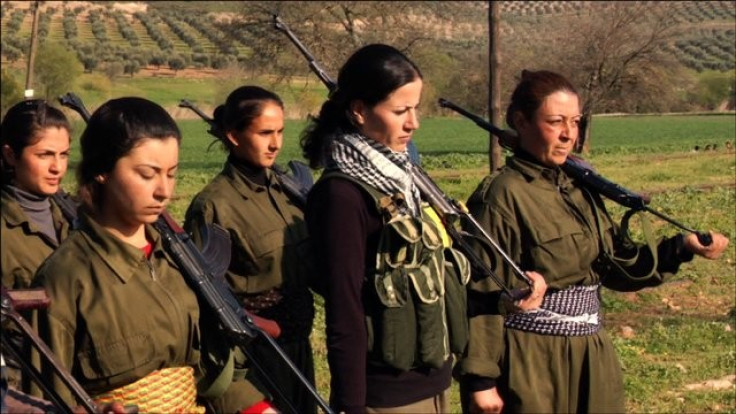Kurdish Communities Lead 'Silent Revolution' in Syrian Rojava Region
David Meseguer and Oriol Gracia's documentary shows Kurds' quiet resistance to Assad and al-Qaida

Some 41km from Aleppo, where the last hopes of the Syrian revolution are fading as the Free Syrian Army (FSA) and forces loyal to president Bashar al-Assad fail to gain a convincing upper hand in the 30-month civil war, a silent rebellion is enduring.
In the historical northern Kurdish enclave of Rojava, Syrian Kurds have experimented with a third way.
Attacked by the FSA and al-Qaida-linked Jabat al-Nusra army, Syrian Kurds have engaged in a strenuous two-pronged offensive - battling both Assad and the Syrian opposition.
Rojava is experiencing apparent stability despite internal struggles between the two main Kurdish parties. On the one hand there are those gathered under the banner of the Kurdish National Council (KNC), an organisation created in 2011 with the support of Masoud Barzani, president of the Kurdistan Regional Government of Iraq (KRG).
On the other, there is Salih Muslim's Democratic Union Party (PYD), the so-called "Syrian branch" of the Kurdistan Workers Party (PKK) based in Turkey. The latter is a grassroots organisation which administers a number of towns in northern Syria through structured "popular councils".
The PYD-controlled areas are the focus of an informative and crowd-funded documentary by Catalan freelance journalists David Meseguer and Oriol Gracia entitled The Silent Revolution.
Following the lives of local Kurds in their daily battle to keep alive their culture and traditions, the documentary depicts a long-neglected aspect of the Syrian uprising. In those semi-autonomous Kurdish communities, women have taken prominent roles in organising life, a Kurdish TV channel (Ronahi TV) has been set up and some academics have started to secretly teach Kurdish.
"We want intellectuals to lead a democratic revolution," says one local PYD politician.
The ruling Assad family - first father Hafez and then his son Bashar - have taken a tough line on the Kurds. They forbade the use of the Kurdish language, forced displacement of the population and denied citizenship to thousands as part of the pan-Arab ideology
In the first scene of the film, a young Kurdish woman gets dressed and armed for her turn at the checkpoint. She is followed by her three children. Wrapping her kefiah around her neck she recounts proudly how she joined the People's Protection Units (YPG), which pushed out Assad's forces from the cities of Kobane, Amuda and Efrin.
Sharp political divisions
Inspired by the founder and leader of the Kurdistan Workers Party (PKK) Abdullah Ocalan, she is just one of the many women soldiers in the YPG. Trained by the PKK itself, the YPG has a superior tactical knowledge and awareness compared to the Syrian Arab rebels. The YPG and the PYD controls 10% of Syrian territory.
Sharp political divisions remain between those forces and the Kurdish regional government in northern Iraq but the directors' choice is to follow the human stories beyond the headlines and the political debate in Syria.
Gracia and Meseguer crossed the Turkish border with Syria in March when a corridor was opened by Kurdish forces. The purpose was to shoot the documentary during the Newroz celebration, the Kurdish New Year.
"The fight between the Assad regime and opposition has monopolised the news. We try to give a voice to minorities," they said at the world premiere of The Silent Revolution at the London Kurdish Film Festival.
Teaching and speaking the Kurdish language after a 50-year ban is a revolution in itself, according to the authors.
"We'd like to show the Kurdish fight against al-Qaida and the new steps towards autonomy," they said. "It's something historical."
© Copyright IBTimes 2024. All rights reserved.






